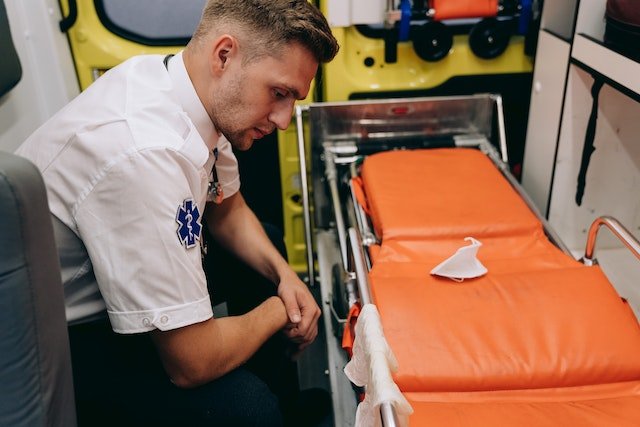How Can Depression Therapy Help First Responders?
There’s no denying that first responders have a lot of weight on their shoulders each day. They see and experience things that most people will never have to deal with, and they often do it in the face of danger or by putting the lives of others ahead of their own.
However, first responders are just people. At the end of the day, they deal with all of the same issues as everyone else.
Unfortunately, because of the nature of their job, they can struggle even more than the average person with things like anxiety and depression.
Because first responders have to deal with so much throughout their careers, depression can become a normal “side effect”. That can lead to poor quality of life and both mental and physical struggles for years to come.
Thankfully, if you’re a first responder struggling with depression, you don’t have to deal with it on your own. Depression therapy can help.
A Better Way of Coping
Multiple studies have shown that first responders have higher anxiety, depression, stress, and PTSD rates than the average person.
Unfortunately, that has caused a spike in unhealthy coping mechanisms. It’s not uncommon for first responders to struggle with substance abuse and addiction. They might have erratic behavior or take risks to “numb” the pain or cope with what they’re going through.
There are obvious problems with that kind of coping. For starters, most unhealthy coping mechanisms are incredibly dangerous. The worst part, however, is that they never work for long. When the effects of drugs or alcohol wear off, for example, it often causes people to take more, or seek out “harder” substances.
How Therapy Helps
Depression therapy can help first responders in a few different ways. First, it will help you get to the bottom of what’s causing your depression. That might be obvious if you’re running into burning buildings, fighting crimes, or saving people’s lives on a daily basis.
However, most people struggling with depression have a deeper cause than what’s on the surface. A therapist will help you discover – specifically – what’s causing your feelings.
Getting to the root cause of depression offers a solid starting point to work from. It allows you to dig into the real problem(s) so you can work on overcoming them as efficiently and effectively as possible.
Therapy can also help you learn the skills necessary to cope in healthy ways. As you start to discuss the root of your depression, your therapist will help you discover things you can do to manage your symptoms and fight back against depressive thoughts. Those are skills you can take with you into the “real world” and things you can use to combat the effects of depression for years to come.
Is Depression Therapy Right for You?
It’s not always easy for a first responder to admit they’re struggling with depression. You might be so used to helping everyone else that you don’t often take the time to address any of your own issues.
However, you can’t pour from an empty cup.
If you continue to struggle with depression and don’t get the help you deserve, you could risk burning out. Your mental and physical health could suffer, your work performance could start to falter, and you might even turn to unhealthy ways of coping with your feelings.
If depression has started to take hold, especially because of your career, it’s okay to put yourself first. Feel free to contact me for more information or to set up an appointment. When you start to prioritize your mental well-being, you’ll feel better about the work you’re doing and the people you’re able to help each day. Reach out to me today for help in depression therapy..


